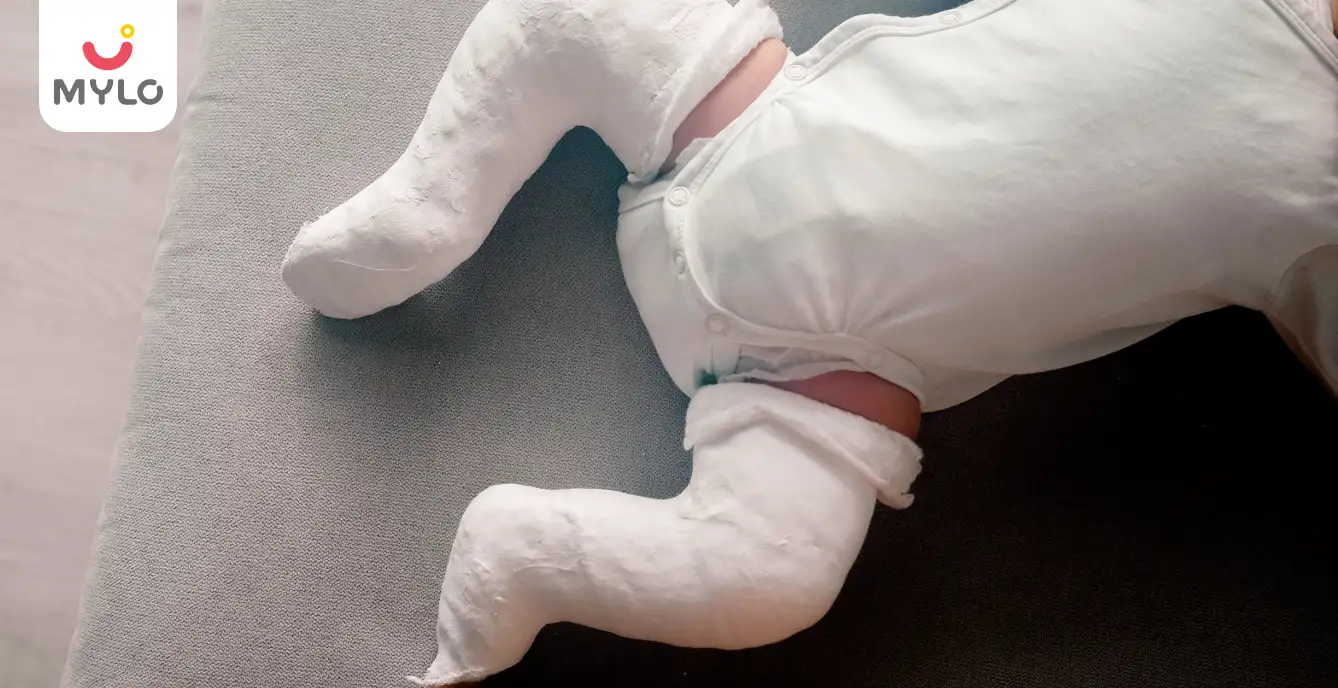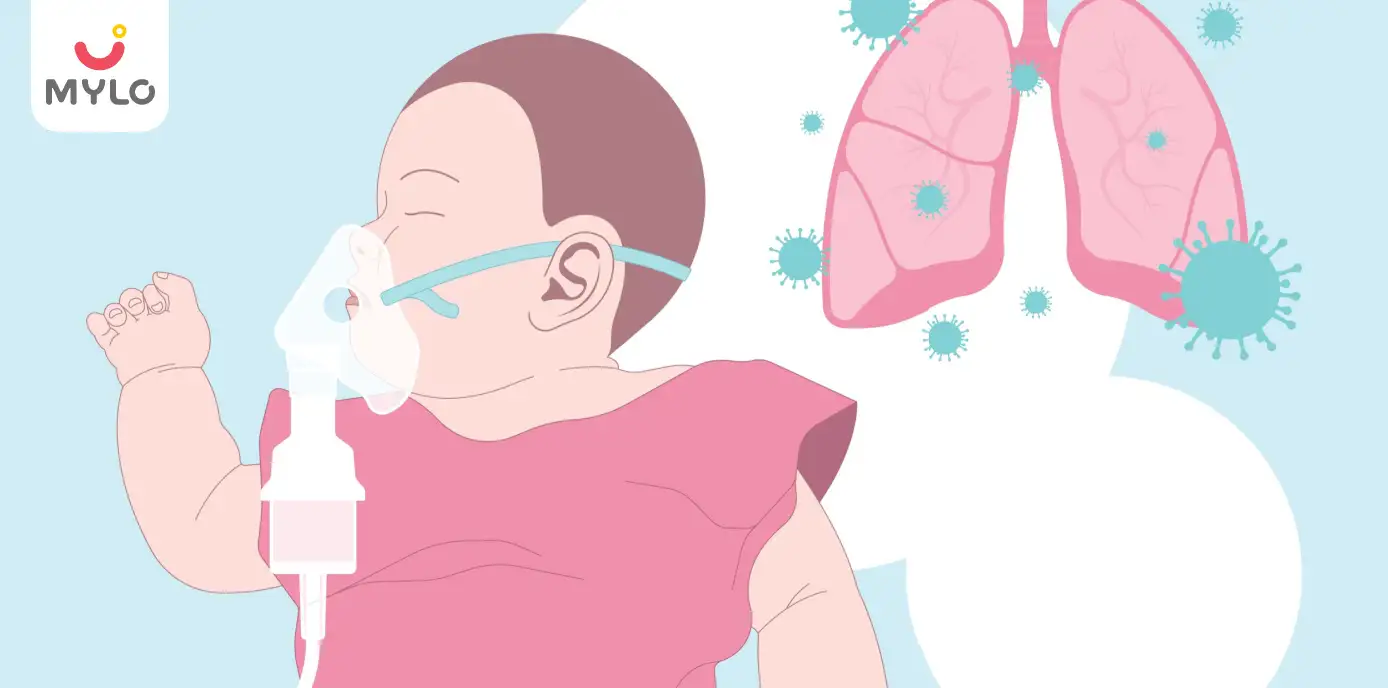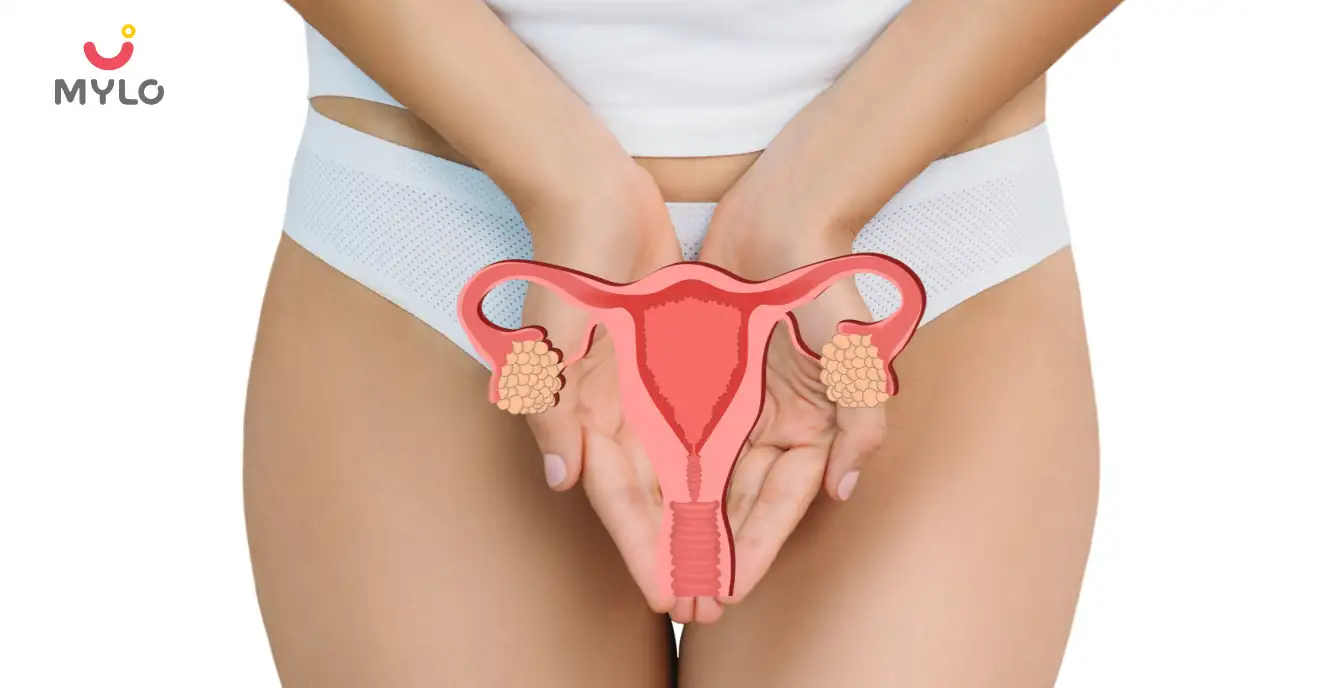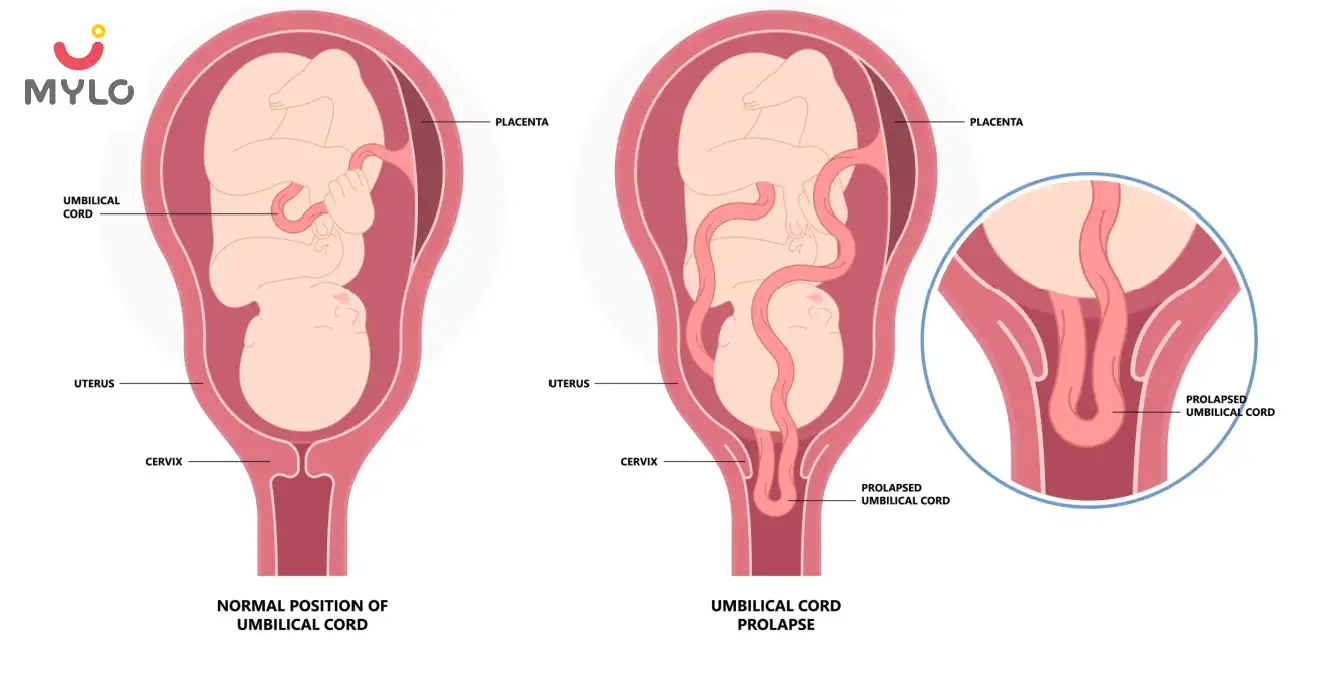Get MYLO APP
Install Mylo app Now and unlock new features
💰 Extra 20% OFF on 1st purchase
🥗 Get Diet Chart for your little one
📈 Track your baby’s growth
👩⚕️ Get daily tips

OR


Article Continues below advertisement
- Home

- Is Pregnancy After 35 Right for You? A Comprehensive Guide
In this Article
- What are the chances of pregnancy after 35?
- What complications can arise in pregnancy after 35 years?
- 1. Problems in conceiving
- 2. Preeclampsia
- 3. Preterm labor
- 4. Higher risk of chromosomal abnormalities in the fetus
- 5. Miscarriage and stillbirth
- 6. Need for a C-section
- 7. Placenta previa
- How to prepare for pregnancy after 35 to minimise the risk of these complications?
- 1. Manage your chronic illnesses before pregnancy
- 2. Never skip prenatal testing
- 3. Take prenatal vitamins religiously
- 4. Adopt a healthy and active lifestyle
- 5. There is no substitute for self-care
- The Bottomline
Getting Pregnant
 3550
3550Is Pregnancy After 35 Right for You? A Comprehensive Guide
Updated on 9 May 2023
Women who want to become mothers always have one thing at the back of their minds- the dreaded biological clock. What if you missed the bus for some reason in your twenties and early thirties but are now ready to become a mother? Is pregnancy after 35 right for your and your baby-to-be?
The good news is that many women in their late 30s and 40s, especially in this day and age, are becoming pregnant and having healthy babies. A late or geriatric pregnancy also has definite positives. You are more financially secure, more experienced and mentally and emotionally ready for a child. Let us understand some potential risks you should be aware of and how to prepare for pregnancy after 35.
What are the chances of pregnancy after 35?
The chances of pregnancy after 35 years decrease as compared to the chances of getting pregnant in the 20s. The number of eggs in the ovaries decreases as women age, and the quality of the remaining eggs may also decline. However, it is possible to become pregnant after 35 with proper care and attention. Women over 35 may experience a higher risk of chromosomal abnormalities in the fetus, as well as a higher risk of gestational diabetes, high blood pressure, and other complications. It's important to consult with a healthcare provider for advice on pregnancy after 35.
Article continues below advertisment
You may also like: What is the Ideal Age to Get Pregnant
What complications can arise in pregnancy after 35 years?
There are a number of complications that may arise during a late pregnancy that need to be taken care of for the mother to get to a healthy delivery.
1. Problems in conceiving
This starts even before pregnancy. It is a known fact that fertility declines after the age of 35 and it takes longer to conceive. As you get older, you have fewer and fewer eggs and it becomes more difficult for the sperm to fertilize the egg as well. In many cases, women may have to rely on assisted reproductive technology.
2. Preeclampsia
Preeclampsia is a condition that is more common in pregnant women above the age of 40. It can happen either right after pregnancy or after the 20th week of pregnancy. In this complication, a woman has high blood pressure and some organs like liver and kidneys don’t function optimally. Symptoms of preeclampsia include having protein in the urine, problems in vision and severe headaches.
3. Preterm labor
Pregnancy after 35 years can carry an increasd risk of preterm labor. Preterm labor is when a pregnant woman's body starts getting ready for birth too early, usually before the 37th week of pregnancy. It increases the risk of premature birth, which can lead to developmental problems in the baby.
Article continues below advertisment
4. Higher risk of chromosomal abnormalities in the fetus
women who become pregnant after age 35 have a higher risk of chromosomal abnormalities in their fetuses. This is because a woman's eggs age along with her, and older eggs are more likely to have abnormal chromosomes. Down syndrome is one of the most well-known chromosomal abnormalities that can occur in babies born to women over 35.
5. Miscarriage and stillbirth
The risk of miscarriage and stillbirth does increase as women get older, with the risk being higher for women over 35. This is due to a variety of factors such as an increase in chromosomal abnormalities and other health conditions that can affect pregnancy.
6. Need for a C-section
It's highly likely that women who conceive after 35 years of age may require a caesarian section for delivering the baby. This is because older women are more likely to have complications during pregnancy and childbirth, such as placenta previa, gestational diabetes, and high blood pressure, which may increase the likelihood of needing a c-section.
7. Placenta previa
Placenta previa is a condition that occurs during pregnancy when the placenta partially or completely covers the cervix. It can cause bleeding during pregnancy and is more common in women over the age of 35 years, those who have had previous cesarean deliveries or multiple pregnancies.
You may also like: Pregnancy After 30: Risks and Benefits
Article continues below advertisment
How to prepare for pregnancy after 35 to minimise the risk of these complications?
Luckily, a lot of these complications can be easily managed and even prevented by taking proper care of yourself throughout conception and pregnancy.
1. Manage your chronic illnesses before pregnancy
It’s best to go to the doctor and make sure you are managing your chronic disorders even before conception. This will help you avoid unnecessary complications during your pregnancy. If you are not able to do so before pregnancy, do make it a point to do so in the early months of your pregnancy and go to an OB/GYN who is experienced in treating pregnant women with chronic diseases. A complete health checkup before conception is also a good idea, even if you don’t have any diagnosed chronic diseases.
2. Never skip prenatal testing
While prenatal tests are recommended for all pregnant women they are especially important for older women due to the higher risk of genetic disorders for the baby. These can be done before conception as well to rule out chances of genetic diseases. Initial prenatal tests are screening tests which will only tell you if you are high risk or low risk for a disease. If you are found to be at a high risk for some diseases you can undertake diagnostic tests like amniocentesis and chorionic villus sampling to find out with certainty.
3. Take prenatal vitamins religiously
Prenatal vitamins, especially folic acid, is even more critical for women who plan pregnancy after 35 years. Prenatal vitamins should ideally be started before conception itself as folic acid helps prevent neural tube defects and the neural tube often starts developing even before the mother comes to know she is pregnant.
4. Adopt a healthy and active lifestyle
It’s very important to have a healthy lifestyle, especially if you’re planning a pregnancy after 35. Having the right diet and exercise routine will go a long way in mitigating pregnancy related complications. It’s important to gain the right amount of weight in a healthy way during pregnancy and get regular physical activity. It’s even better if you don’t wait till you’re pregnant and adopt a healthy lifestyle before conception. It goes without saying that smoking, alcohol and drugs should be avoided completed as they are especially risky for older women.
Article continues below advertisment
5. There is no substitute for self-care
Stress can be one of the biggest risk factors when you’re pregnant. Make sure you take time out small indulgences like a trip to the parlour or the movies or long walks with your partner or meditation. The happier you are the better it is for the life growing inside you.
You may also like: Importance of Preconception Counselling and Care
The Bottomline
In conclusion, pregnancy after 35 is a personal decision that requires careful consideration and planning. While it may come with some risks, many women have successful pregnancies and healthy babies in their late 30s and beyond. It's important to take steps to increase the chances of a healthy pregnancy, such as scheduling a preconception checkup, taking prenatal vitamins, maintaining a healthy lifestyle, and seeking medical care if needed.



Written by
Mylo Editor
Official account of Mylo Editor
Read MoreGet baby's diet chart, and growth tips

Related Articles
Related Questions
Influenza and boostrix injection kisiko laga hai kya 8 month pregnancy me and q lagta hai ye plz reply me
744 views
Hai.... My last period was in feb 24. I tested in 40 th day morning 3:30 .. That is faint line .. I conculed mylo thz app also.... And I asked tha dr wait for 3 to 5 days ... Im also waiting ... Then I test today 4:15 test is sooooo faint ... And I feel in ma body no pregnancy symptoms. What can I do .
748 views
Baby kicks KB Marta hai Plz tell mi
750 views
PCOD kya hota hai
1317 views
How to detect pcos
55 views
Related Topics
RECENTLY PUBLISHED ARTICLES
our most recent articles

Symptoms & Illnesses
Clubfoot (Talipes Equinovarus): Meaning, Symptoms & More
(2,838 Views)

Cold & Cough
RSV (Respiratory Syncytial Virus): Symptoms, Causes & Treatment
(4,780 Views)

Love, Sex & Relationships
Loose Vagina: Learn How To Tighten Your Vagina Naturally
(8,831 Views)

Umbilical Cord Complications
Umbilical Cord Prolapse Causes, Symptoms & Treatment
(4,474 Views)

Symptoms & Illnesses
Bipolar Disorder: Causes, Symptoms, Risks & Treatment
(4,658 Views)

Illnesses & Infections
Sinus Infection During Pregnancy Causes & Treatment
(3,362 Views)
- Intrauterine Growth Restriction (IUGR) in Pregnancy
- APGAR Score: Meaning & How it is Performed
- Dyspareunia (Painful Intercourse): Causes & Treatment
- Short Bowel Syndrome: Causes, Symptoms, and Treatment
- Pelvic Inflammatory Disease (PID): Symptoms, Causes & Treatment
- Lightning Crotch in Pregnancy: All You Need to Know
- Vaginal Dilator: Learn its Types & How To Use It?
- Infected Umbilical Cord: Symptoms, Treatment And Prevention
- Is Hair Fall Normal in Pregnancy
- Syphilis: Symptoms, Causes, Risks & Treatment
- Congenital Heart Disease: Symptoms, Causes & Treatment
- Fetal Echo Test in Pregnancy: A Diagnostic Tool for Detecting Heart Defects in the Womb
- Bedwetting (Nocturnal Enuresis): Causes, Symptoms & Treatment
- Birthmark: Types, Causes, Risks & Treatment


AWARDS AND RECOGNITION
Mylo wins Forbes D2C Disruptor award
Mylo wins The Economic Times Promising Brands 2022
AS SEEN IN
















At Mylo, we help young parents raise happy and healthy families with our innovative new-age solutions:
- Mylo Care: Effective and science-backed personal care and wellness solutions for a joyful you.
- Mylo Baby: Science-backed, gentle and effective personal care & hygiene range for your little one.
- Mylo Community: Trusted and empathetic community of 10mn+ parents and experts.
Product Categories
baby carrier | baby soap | baby wipes | stretch marks cream | baby cream | baby shampoo | baby massage oil | baby hair oil | stretch marks oil | baby body wash | baby powder | baby lotion | diaper rash cream | newborn diapers | teether | baby kajal | baby diapers | cloth diapers |








